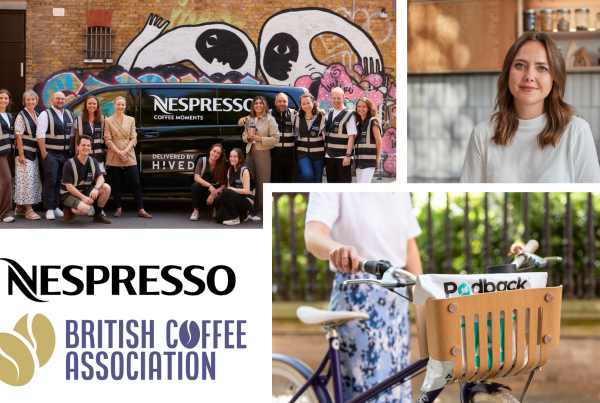 In October, the Scottish Government announced that a mandatory charge on single-use drinks cups could be introduced.
In October, the Scottish Government announced that a mandatory charge on single-use drinks cups could be introduced.If passed, as part of the Circular Economy Bill, the charge will add an extra 20p to 25p to the cost of a takeaway coffee, tea or any other drink, unless a reusable cup is presented. The new legislation is set to be consulted on next year and if passed, will be introduced in 2021 or 2022.
We are strongly against this proposed paper cup charge and see it as an unfair cost to customers who will be paying for the country’s complete lack of recycling infrastructure throughout the whole of the UK. What’s more, there have been no commitments as to where the money raised from the additional charge will go and certainly no guarantees that it would be ring-fenced for better recycling infrastructure within Scotland. The original expert report written by Zero Waste Scotland did not recommend a cup charge. Instead it suggested that retailers highlighted a separate cost for the cup i.e. from a cup of coffee charged at, for example, £2.60 – the customer is paying £2.35 of coffee and 25p for the cup. Unfortunately, this seems to be being interpreted differently by the Scottish Government.
Whilst we agree with the Environment Secretary, Roseanna Cunningham’s view that “no single-measure will be effective on its own,” we call upon the UK government and devolved governments to do more to focus on scaling recycling infrastructure and improving consistency as a priority, in order to address this issue. Despite the issues with the wider recycling infrastructure, many leading High Street brands are driving cup recycling via The Valpak Scheme, paying waste collectors to recover takeaway cups and Costa Coffee, Pret and McDonald’s all have recycling points within all their stores and restaurants. Retailers are also funding various initiatives within Scotland to raise awareness of cup recycling, including In The Loop, in partnership with Hubbub, and The Glasgow Cup Movement with Keep Scotland Beautiful.
Single-use coffee cups are in fact fully recyclable and the UK has sufficient capacity to process all coffee cups used, however capturing them within the existing infrastructure is the key issue. What’s more, according to the House of Commons Environmental Audit Committee on Disposable Packaging: Coffee Cups, single-use cups only contribute 0.7% of paper packaging waste in the UK and account for even less of the UK’s total waste (0.1%) – so why are coffee shop customers being taxed for a product that only contributes to a tiny fraction of packaging waste in the UK?
Although we wholeheartedly support the coffee industry’s ambition to have zero waste packaging by 2025, such an ambition requires a positive combination of both industry collaboration and government commitment (at national and local levels) to invest and expand recycling infrastructure in the UK. Consistency in material recycling and the right infrastructure across the UK, along with easy to follow guidance for all consumers is what we need, not a customer charge on paper cups which entirely fails to address these core issues.
At the BCA, we have been working and engaging with DEFRA and the Treasury over the Resources and Waste Strategy second round of consultations in 2020 and hope that we can discuss this latest legislation as part of these conversations.



